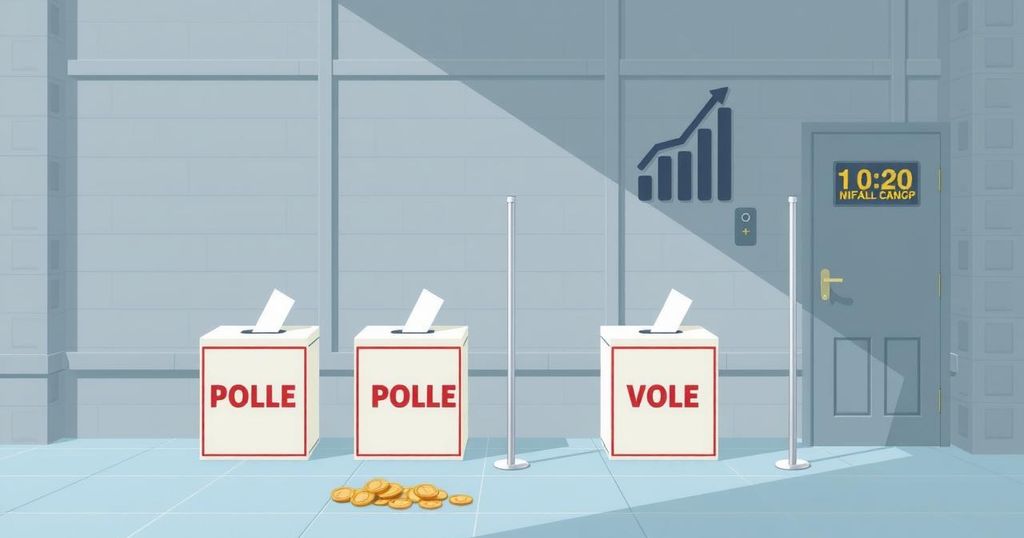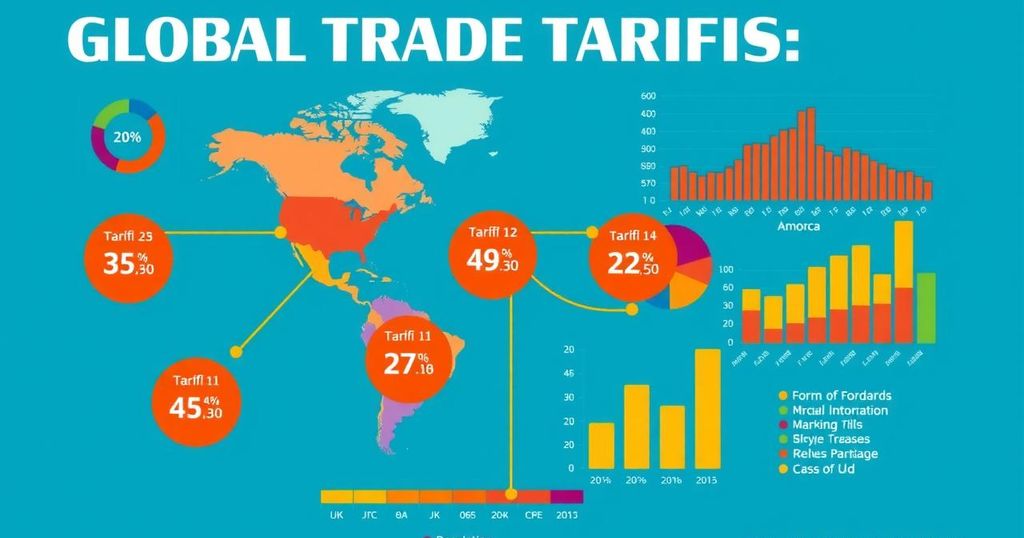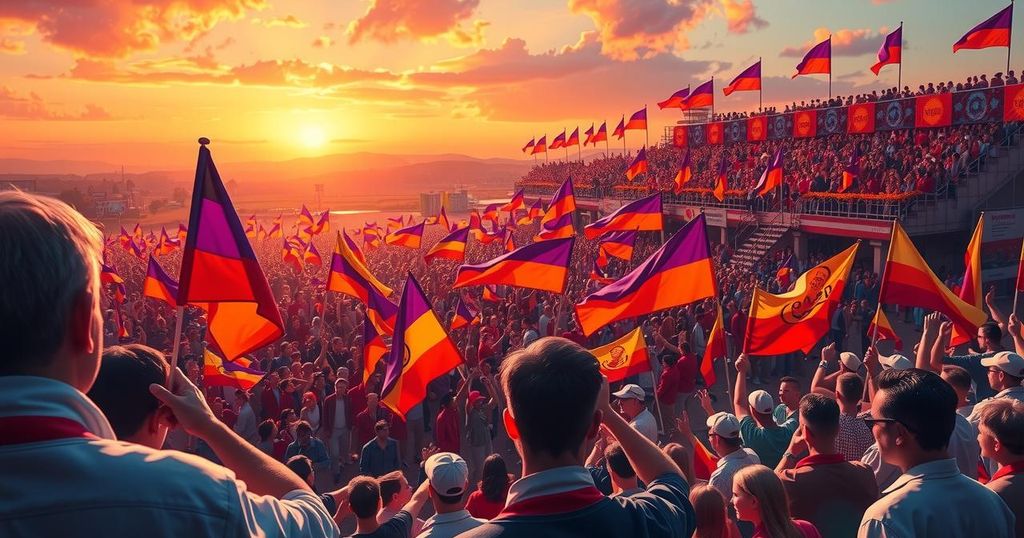Ghana’s impending general election is occurring against a backdrop of severe economic difficulties, with 18.7 million eligible voters. Vice President Mahamudu Bawumia and former President John Mahama lead as candidates. Discontent with economic management is widespread, reflected in public opinion polls. Key issues include economic instability and illegal gold mining, making this election crucial for Ghana’s democratic future.
As Ghanaians prepare to vote on Saturday, the nation faces the worst economic crisis in a generation. With 18.7 million registered voters, the upcoming general election will serve as a significant indicator of the country’s democratic health amidst rising extremism and coups in West Africa. Ghana historically showcased democratic stability but is now challenged by severe inflation and widespread unemployment.
A recent survey from Afrobarometer reveals that 82% of Ghanaians believe the country is on the wrong path. Although twelve candidates are contesting the presidency, the election predominantly revolves around two main contenders: Vice President Mahamudu Bawumia of the New Patriotic Party (NPP) and former President John Mahama of the National Democratic Congress (NDC). Both parties, despite their differing ideologies, present similar platforms with little promise for substantial change in economic policies.
In addition to the presidential elections, 276 parliamentary members will also be elected. The NPP and NDC each currently hold 137 seats in a legislature comprising 275 members. As political rallies conclude, both candidates are making fervent appeals, with Bawumia pledging to continue stabilizing the economy and Mahama vowing to “reset” various sectors crucial to the nation’s welfare.
Campaign enthusiasm is evident across Accra, with vibrant posters and lively street rallies. However, anxiety persists regarding the core concern: the country’s struggling economy. Following a default on foreign debt last year and soaring inflation rates reaching 54%, Ghanaians continue to feel the economic pinch, which has affected their daily lives.
The issue of illegal gold mining, or galamsey, has also been prominent in the campaign. Despite Ghana being a leading gold producer, illegal mining practices have proliferated, polluting the environment and compounding employment woes as many resort to this activity amidst economic despair. The ramifications of these challenges remain a central theme in the electoral discourse as Ghanaians head to the polls.
The upcoming general election in Ghana is poised to be a pivotal moment for its democracy amid a crippling economic crisis. With significant public dissatisfaction and a tight competition between the leading candidates, both the presidential and parliamentary outcomes will reflect the voters’ response to pressing economic challenges. The situation of illegal gold mining adds an additional layer of concern, pressing the need for effective governance in addressing critical national issues.
Original Source: apnews.com




